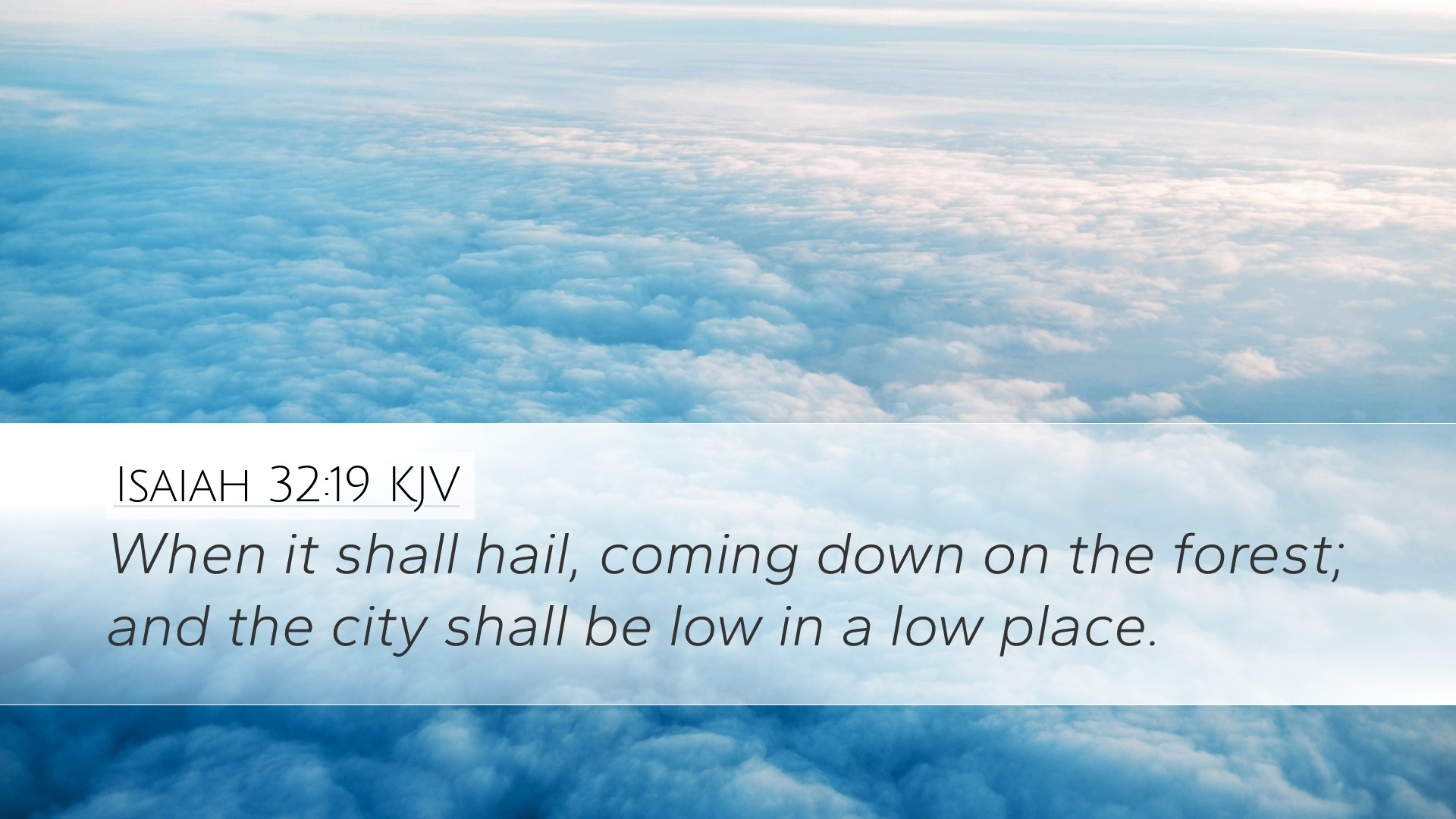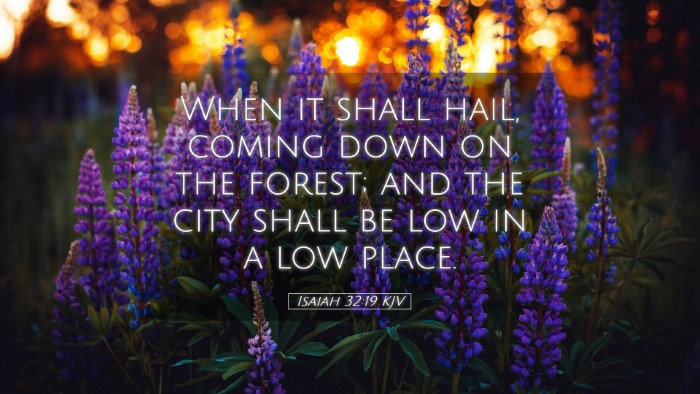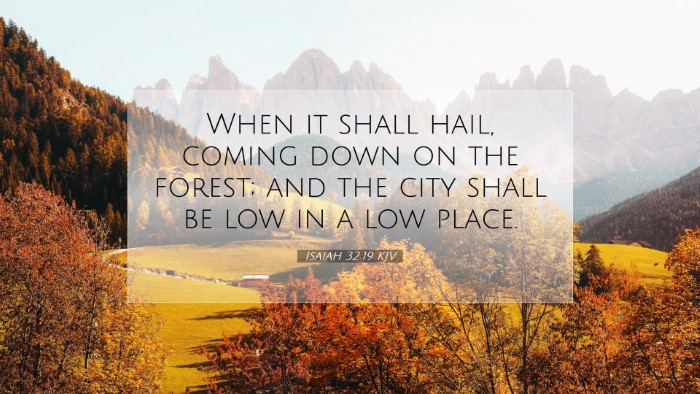Commentary on Isaiah 32:19
Isaiah 32:19 states:
"But it will hail when the forest comes down, and the city will be utterly laid low."
Introduction
This verse, nestled in the prophetic vision of Isaiah, speaks to the judgment that falls upon the earth in response to human sin and rebellion. It bears a weighty message of divine justice interwoven with a call to righteousness, resonating throughout the ages among pastors, students, theologians, and scholars alike.
Contextual Background
Isaiah prophesied during a tumultuous time in Judah, marked by political instability and moral decay. His messages oscillate between impending judgment and the promise of future restoration. Understanding the historical and spiritual context of this verse enhances its significance.
Historical Context
Isaiah prophesied during the late 8th century BC, a period when Judah faced threats from the Assyrian Empire. His warnings reflected the consequences of national sin and the inevitable backlash of divine discipline.
Commentary Insights
Matthew Henry's Commentary
Henry notes that this verse illustrates a stark contrast between God’s judgment and human security. The “forest” symbolizes the mighty and proud—the nations and their leaders—while the “city” represents the societal structures that reinforce human pride. The imagery of hail indicates a sudden and fierce intervention by God, signifying that even the proudest will face their reckoning. Henry emphasizes the impermanence of human achievements when faced with Divine sovereignty.
Albert Barnes' Commentary
Barnes interprets the verse as a depiction of the catastrophic events that will follow due to divine anger against the people’s iniquities. He argues that “hail” stands as a metaphor for God’s swift and devastating judgment. He further aligns this with the prophetic theme of divine retribution against nations that enact injustice, reinforcing the message that human arrogance will ultimately succumb to divine correction.
Adam Clarke's Commentary
Clarke adds a pastoral nuance by reflecting on the spiritual implications of the “forest” and “city.” He identifies the societal structures as key arenas where justice and righteousness should reign. Clarke also warns that the pervasive sin in these “cities” invites divine retribution, emphasizing the need for repentance. He stresses that the judgment is not merely punitive but is intended to lead to restoration and righteousness.
Theological Implications
The theological reflections extracted from this verse encompass themes of judgment, justice, and hope. They remind believers of God's holiness, the gravity of sin, and the necessity of living righteously in the light of impending consequences.
- Divine Judgment: A recurring motif in the prophetic books, illustrating that God will not overlook injustice and immorality.
- Human Fragility: The downfall of the “forest” and “city” underscores humanity's vulnerability in the face of divine authority.
- Call to Righteousness: The warnings serve as a catalyst for personal and communal reflection on ethical living aligned with God’s standards.
Practical Application
For pastors and church leaders, Isaiah 32:19 is a poignant reminder of the importance of teaching congregations about divine justice and the necessity of righteousness. In today’s context, this verse emphasizes the relevance of accountability and the spiritual cost of societal sin.
Reflection Questions
- How do we recognize and respond to the presence of sin in our communities?
- In what ways can we promote justice and righteousness in our interactions both personally and institutionally?
- What practical steps can the Church take to embody the values of the Kingdom in a society that often embraces immorality?
Conclusion
Isaiah 32:19 serves as a powerful reminder of the reality of divine judgment against pervasive sin and injustice. The insights from historic public domain commentaries illustrate the timeless relevancy of this passage. As believers engage with these texts, they are called not just to contemplation, but to action—ensuring their lives, communities, and churches reflect the righteousness of God amidst a world in need of redemption.


